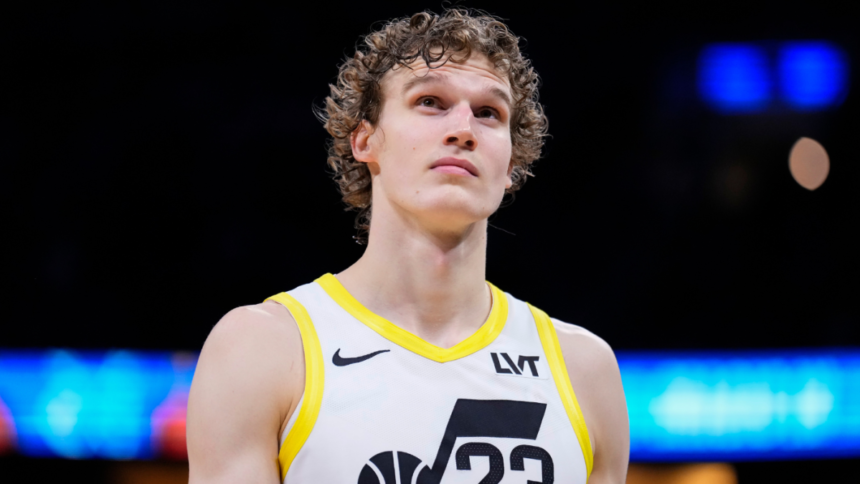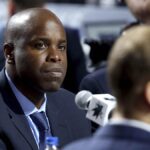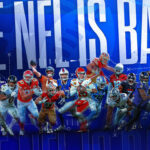Lauri Markkanen arrived in Utah as the result of another superstar trade. He was one of the primary assets sent to Utah when the Jazz traded Donovan Mitchell to the Cleveland Cavaliers. The plan, pretty transparently, was to tank. That’s the expectation when you turn your two best players into seven first-round picks and a handful of young players.
Markkanen threw that plan off course. He was so good in his new surroundings that the Jazz, two years in a row, managed to hang around the fringes of the playoff race until the trade deadline. He has emerged as an All-Star. Perhaps not a franchise player, but a core piece for a team otherwise lacking them.
So why is Markkanen so frequently mentioned in the rumor mill? Is there any substance to these trade ideas? And what is he worth to a general manager that routinely trades stars for more value than anyone thinks possible?
Why he’s in trade rumors
Markkanen is caught in the same uncomfortable middle ground that Mikal Bridges is in Brooklyn. Clearly, he’d be spectacular as the second-best player on a good team. But the Jazz have missed the playoffs in both of his seasons in Utah. It’s just hard to imagine him being the best player on a winner, and Danny Ainge doesn’t build for the middle. Utah’s goal is championship contention. The Jazz have the assets to trade for a “best player on a winner” sort of guy, but convincing a veteran of that caliber to come to Utah would be difficult. Realistically, their best chance at getting that player is in the draft. Markkanen makes them too good to do so.
The Jazz have tacitly acknowledged this uncomfortable middle ground two years in a row. They’ve started both seasons in the mix for a Play-In spot only to sell off veterans at the deadline and go in the tank. This team clearly doesn’t believe it’s ready to win at a high level yet, but it hasn’t committed to losing either. That made sense in 2023, when the Jazz were still figuring out what they had in Markkanen, and it made sense in 2024, when the draft wasn’t strong enough to warrant a tank anyway.
But the 2025 draft class is loaded, and while Utah has a bunch of picks from other teams, the only picks whose value you can control are your own. Utah’s best chance at drafting a star will be with its own picks, and getting to the bottom now, while the West is so deep, is eminently doable if Markkanen isn’t on the roster. Couple all of this with the fact that Markkanen is underpaid and expected to renegotiate and extend his contract this offseason and, well, you see the motivation for a trade on Utah’s side. It’s time for them to pick a direction, and doing so before paying Markkanen is their best shot at maximizing his value.
Why the Jazz would keep him
The short answer is that it’s hard to get players of Markkanen’s caliber under any circumstances, and it’s even harder to do it in Utah. Regardless of where the rest of the roster sits, the Jazz have an All-Star-caliber player right now. There’s no guarantee that they’d be able to draft another by tanking. Keeping Markkanen may make it harder to add the sort of player they’ll need to compete for a title, but it also guarantees a degree of competence teams rarely want to sacrifice. If they can find that top player, having Markkanen as a sidekick would be incredibly valuable.
It’s also worth noting that the Jazz have explored win-now additions lately, even if they haven’t ultimately pulled the trigger. They were in the running for Jrue Holiday. They talked to the Hawks about Dejounte Murray, but seemingly moved away from him when it became clear such a deal would cost young guard Keyonte George. The Jazz probably should be tanking. But they haven’t proactively taken that step, so it’s not some slam dunk that they will.
Finally, there are optics at play here. Danny Ainge has a bit of a reputation for callousness when it comes to roster-building. He’d trade anyone for the right price. That’s probably the right way to approach the job, but it has a pronounced effect on team morale. No player wants to feel like an asset rather than a human being even if the business of basketball makes it true. Trading Markkanen sends a message to the rest of the roster that any one of them could be next in service of the team’s greater goals. That’s not something to be done lightly.
What destinations make sense?
Markkanen makes sense for a pretty wide variety of teams. He can play either small or power forward. He’s no defensive stopper, but he can survive on that end of the floor. He’s reasonably cheap (for now), and he’s never expressed a desire to play in certain markets. It’s “best offer wins” time, folks. Here are three sensible destinations.
Oklahoma City Thunder: If the Jazz want to add to their stockpile of picks, no team can give them more than the Thunder. Oklahoma City not only has the most draft picks of any team, but the most diversified stack. The Jazz could handpick the teams they want to short, and as an added bonus, they’d effectively be taking the Thunder out of the race for future blockbusters because they’d be paying Shai Gilgeous-Alexander, Jalen Williams, Chet Holmgren and Markkanen at that point. Oklahoma City wants to play five-out. Good luck stopping that foursome. Utah might be handing Oklahoma City multiple titles with this sort of trade, but the price coming back to them could be worth it.
Houston Rockets: Houston is a bit short on its own picks, but still has several more Nets picks incoming that would surely appeal to Utah. The Rockets have been star-hunting since at least the deadline, and Markkanen has the advantage of being able to fit with either Dillon Brooks or Jabari Smith Jr. at forward, allowing for all three to remain the core of Houston’s forward rotation.
San Antonio Spurs: The Spurs are the Thunder, but a few years earlier in their contention window. They have picks from other teams (most notably Atlanta), but not quite as many. They have an impending mega star in Victor Wembanyama, but he still has three years left on his rookie deal, so the Spurs can afford a major expenditure and that isn’t changing for awhile. In addition to everything else both of them do, the spacing of an offense with Wembanyama and Markkanen in the front-court would be basically impossible to defend. It could set the Spurs up to be a supercharged version offensively of what the Celtics have become: shooters everywhere creating driving lanes for everybody.
What is the latest reporting?
The Athletic’s Tony Jones speculated that it would “something like four or five first-round picks, and a star-level talent” for Utah to consider trading Markkanen. This is, obviously, not happening, but generally speaking, this is par for the Ainge course. The reporting in 2022 suggested that Utah wasn’t eager to move Rudy Gobert or Donovan Mitchell either. How’d that go? Ainge sets very high prices for his stars, but if someone is willing to meet them, he’s typically willing to trade them. So for now, a trade may not look feasible, but Ainge is always listening. He’ll consider it if someone wants to bowl him over.










